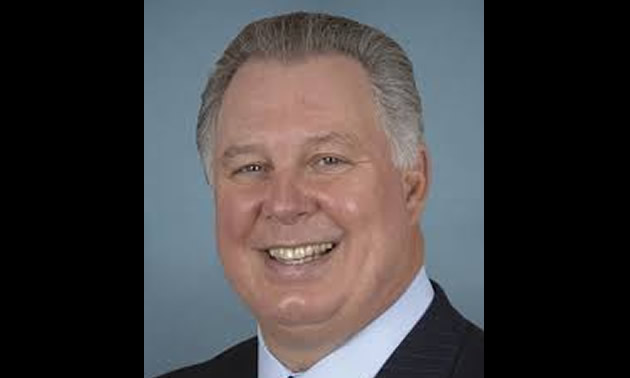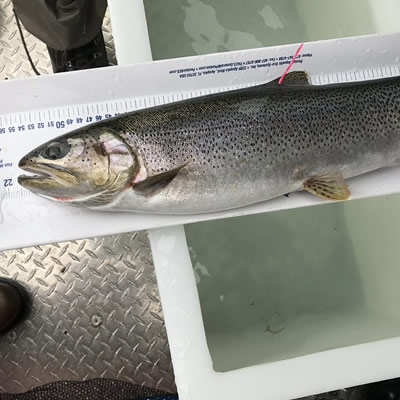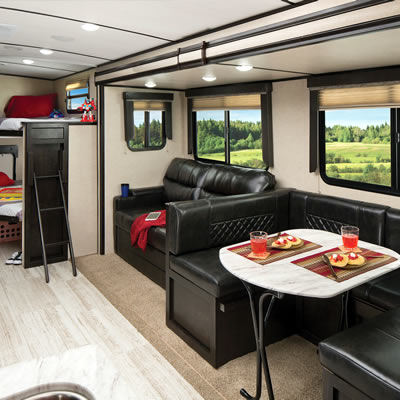US Congress looks to extend Canadian snowbird stays to eight months

If U.S. Congressman Albio Sires, a Democratic representative from New Jersey has his way, Canadian Snowbirds could be staying a couple of months longer every winter in the sunbelt states.
On Tuesday, February 7th, Mr. Sires introduced a bill to Congress calling on the US Government to extend the stay of visiting Canadian snowbirds from 6 months (182 days) to 8 months (240 days).
Called the “Promoting Tourism to Enhance our Economy Act 2107” the bill cited purpose is the “promoting (of) tourism” with the set purpose of “encouraging Canadian tourism to the United States.”
The criteria is that the person be a citizen of Canada, at least 55 years of age, maintains a residence in Canada and either own a residence in the U.S. or have a signed rental agreement for accommodations for the period of stay. (So it is somewhat unclear how the bill would affect RVers who travel around the States while visiting the U.S. sunbelt regions.)
What are the tax implications of the bill? The proposed bill states, “An alien (Canadian snowbird) admitted pursuant to this subsection shall be treated as a non-resident alien for purposes of the Internal Revenue Code.”
In general, here is the wording of the bill:
The Secretary of Homeland Security may admit as a visitor for pleasure as described in section 101(a)(15)(B) any alien for a period not to exceed 240 days, if the alien demonstrates, to the satisfaction of the Secretary, that the alien—
(A) is a citizen of Canada;
(B) is at least 55 years of age;
(C) maintains a residence in Canada;
(D) owns a residence in the United States or has signed a rental agreement for accommodations in the United States for the duration of the alien’s stay in the United States;
(E) is not inadmissible under section 212;
(F) is not described in any ground of deportability under section 237;
(G) will not engage in employment or labor for hire in the United States; and
(H) will not seek any form of assistance or benefit described in section 403(a) of the Personal Responsibility and Work Opportunity Reconciliation Act of 1996 (8 U.S.C. 1613(a)).
(2) Spouse
The spouse of an alien described in paragraph (1) may be admitted under the same terms as the principal alien if the spouse satisfies the requirements of paragraph (1), other than subparagraphs (B) and (D).
(3) Immigrant intent
In determining eligibility for admission under this subsection, maintenance of a residence in the United States shall not be considered evidence of intent by the alien to abandon the alien’s residence in Canada.
(4) Period of admission
During any single 365-day period, an alien may be admitted as described in section 101(a)(15)(B) pursuant to this subsection for a period not to exceed 240 days, beginning on the date of admission. Periods of time spent outside the United States during such 240-day period shall not toll the expiration of such 240-day period.
(5) Non-resident alien tax status
An alien admitted pursuant to this subsection shall be treated as a nonresident alien for purposes of the Internal Revenue Code of 1986 (other than subtitle B thereof).
The only other sticking point might be provincial healthcare coverage limits, which vary in Canada. At this point in time BC, Alberta, Saskatchewan, New Brunswick, Nova Scotia, NWT allow residents to be absent for up to seven months and still qualify for health coverage. Ontario allows residents 212 days, Quebec and PEI have a six month limit and while Newfoundland and Labrador allow residents to be absent up to the equivalent of eight months.
This new proposal is similar to a bill tabled by another member of Congress, Elise Stefanik, last fall. In her bill she proposed a “Snowbird Visa” which would extend the time Canadians over 50 years of age, could stay in the U.S., also to eight months.
Congresswoman Stefanik stated on her website, “Providing them with an extra two months to engage in these activities will support many small businesses, grow jobs, and foster an ever closer relationship with our northern neighbor. Canada is the number one source on international visitors to the United States….This legislation will provide retired Canadians who own or lease a home in the United States with an additional two months to shop, travel, or recreate.”
Congressman Sires told the media that he did not anticipate any opposition to the bill once it hits from Congress or the House of Representative. No timeline is indicated on when this new bill may be voted on.








